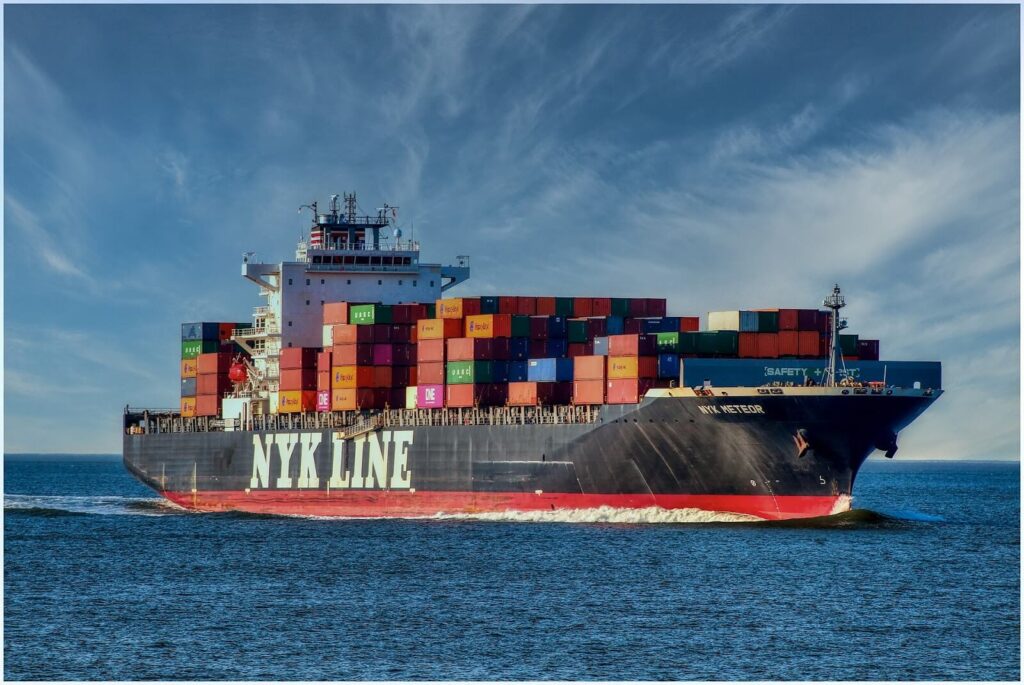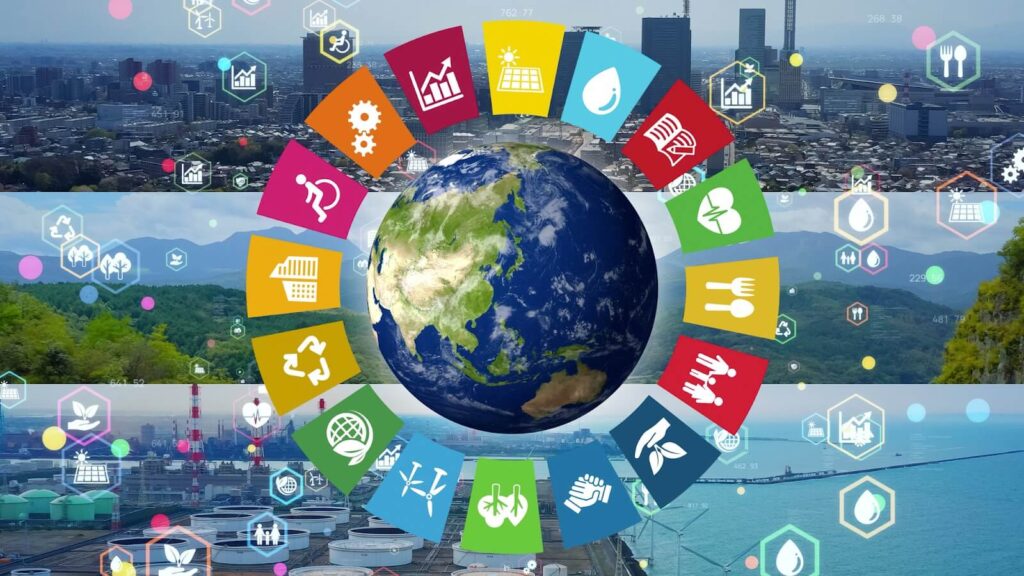
Goods are transported by car, plane and train routes, but most Japanese trade cargo is carried by ship.
Since most of the transportation is by ship, the loss of a ship could result in the loss of oil, gas, food, clothing, lumber, and other necessities of our daily lives.
Did you notice that shipping is an indispensable transport system in Japan, and one that contributes to both the economy and the environment?
In this article, we will therefore explain how ship transport affects the economy and the environment.
Contents
Ships support the Japanese economy.

Japan’s trade
Japan is the small island and is therefore dependent on exports and imports.
Most of the gasoline that powers our cars, the clothes we wear when we go out and the liquefied natural gas that is used to make city gas are imported.
Conversely, Japan exports cars, parts, semiconductors and other electronic components, with sales of these products amounting to ‘7.1 trillion yen’ according to the 2022 Ministry of Finance trade statistics.
What percentage of these imports and exports are transported by boat?
According to the Japan Maritime Public Relations Association under the Cabinet Office, the answer is: 99.6% in 2021.
Japan conducts almost all trade by sea.
Ships support the Japanese economy to such an extent that the loss of a ship would destroy the Japanese economy.
Why trade by ship?
We mentioned earlier that boats support Japan’s economy.
‘Wouldn’t flying be faster and better?’ Some may think.
This section explains why we trade by ship.
In conclusion, trade is carried out by ship because it is ‘transport efficient‘.
Transportation efficiency looks at how much more or less cargo is carried relative to the energy consumed in transportation.
In simple terms, it’s about how to use less fuel and carry more.
Airplanes are certainly faster, but ‘luggage space’ is limited.
Trucks can carry a lot of goods, but have high ‘CO2 emissions’.
Because ships “can carry large volumes of cargo while reducing CO2 emissions,” their transportation efficiency is incredibly higher.
Specific CO2 emissions are presented under the following headings.
Ship transport is environmentally friendly.

These days, we hear a lot of words about environmental issues such as ‘global warming’ and ‘greenhouse gases’.
In particular, ‘CO2 reduction’ has become a global theme, and products that emit as little CO2 as possible, such as ‘electric vehicles’, are being developed.
According to the Ministry of Land, Infrastructure, Transport and Tourism (MLIT) in 2019, the “CO2 emissions per kilometre travelled with 1 tonne of goods” are as follows.
| private car | 1166g |
| commercial lorry | 225g |
| Ship | 41g |
Compared to ships, private vehicles such as passenger cars emit approximately 28 times more CO2 and commercial vehicles such as trucks emit approximately five times more CO2.
As it was discussed in the previous heading, ship transport is not only able to carry more goods, but it is also environmentally friendly.
Ship transport contributing to the SDGs

What is the SDGs?
The SDGs are an international initiative to set Sustainable Development Goals to achieve a better world.
It consists of 17 goals and 169 targets, and here we will talk about Goal 13: Take concrete action on climate change, to which ships contribute to the SDGs.
‘Goal 13: Take concrete action on climate change’
The ‘climate change’ the world is facing today is ‘natural disasters’ such as heat waves, torrential rains and large typhoons.
Global warming” is deeply related to this natural disaster, and one of the causes is “CO2”.
This means that reducing CO2 emissions will help prevent global warming and help achieve the goals of the SDGs.
As explained in the previous heading, “CO2 emissions from shipping” are extremely low compared to other modes of transport.
Ship-based transport systems are found to be earth-friendly and contribute to achieving the goals of the SDGs.
Summary
We have discussed three main points in this issue.
- Ships support the Japanese economy.
- Ships are an eco-friendly mode of transport with low CO2 emissions.
- Using ship transport systems can contribute to achieving the SDG targets
A ship-based transport system will be essential not only for Japan, but also for the planet.
We also manufacture a wide range of marine equipment.





